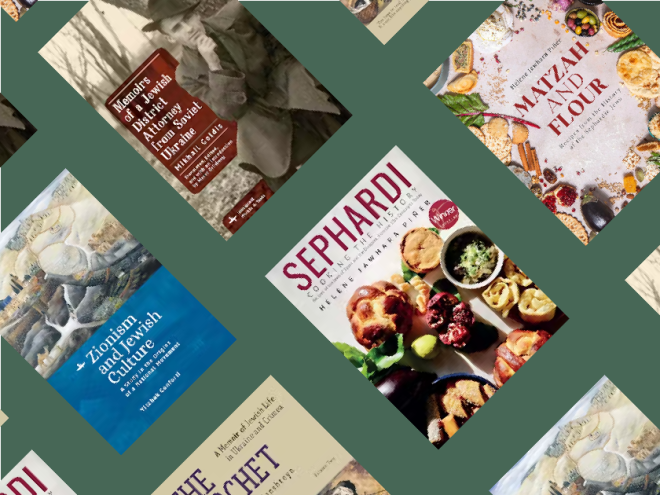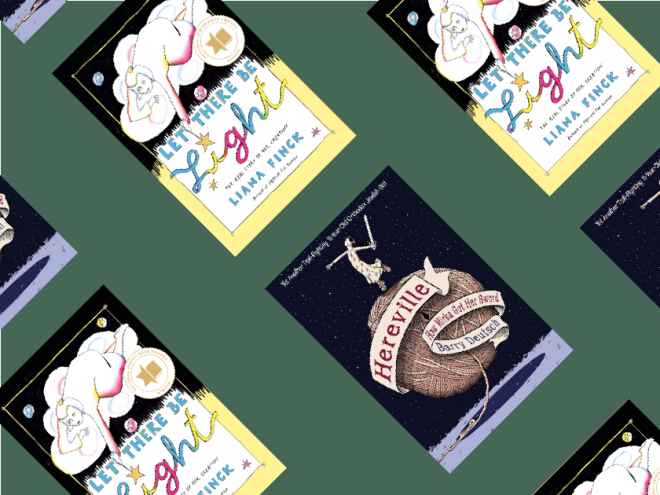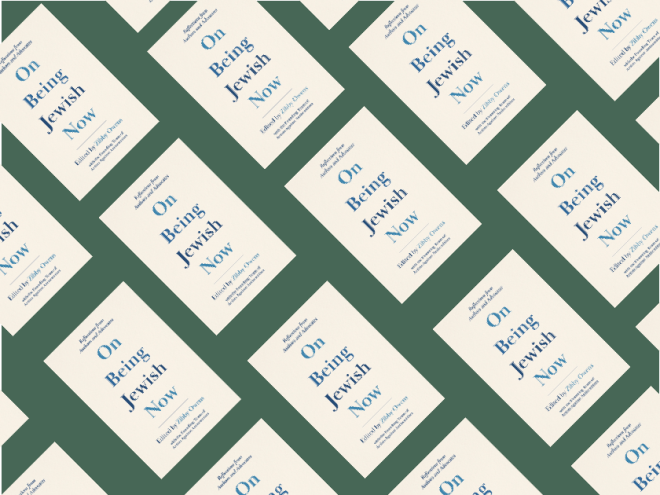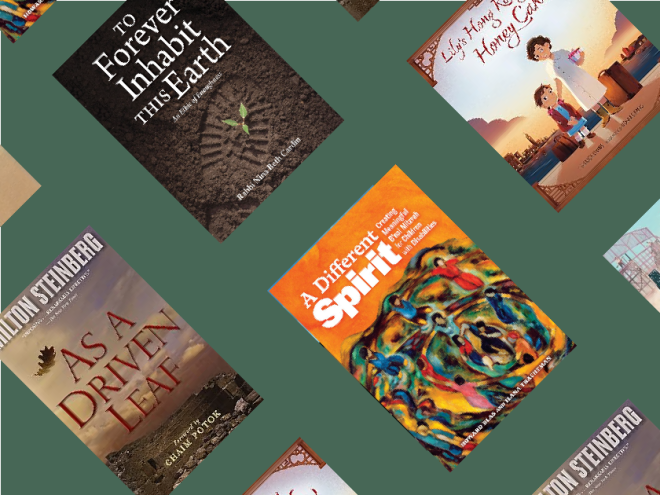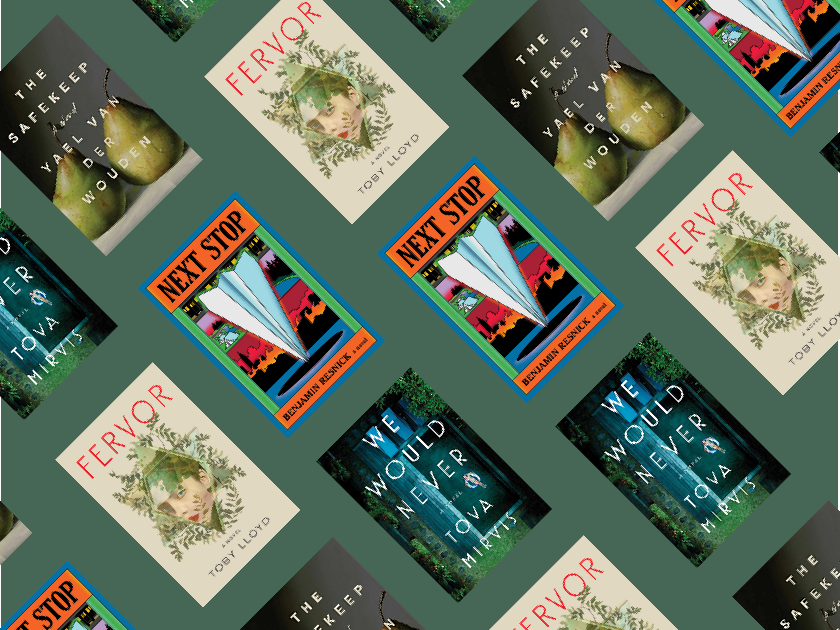
What’s the scoop on publishing? What Jewish books are agents, editors, and publishers looking to acquire — and which books are they especially excited for us to read? At JBC, we’ve launched a new series, BookWatch, to answer these frequently asked questions. Each month, a publishing insider will write an email to introduce themselves, give us a behind-the-scenes look at their work, and tell us about forthcoming Jewish books they can’t wait to usher into the world.
This piece originally appeared in a JBC email on Friday, August 16. Sign up here for our emails to be one of the first to know the latest Jewish literary news!
The world has gotten so loud.
The noise is constant, endless, a juggernaut, a flood. There are actual, genuine horrors unfolding all around us, and that is not what I’m talking about. I’m talking about the rest of it — the social media chicken fights, the political sandbox brawls, the static pulsing through our little echo chambers, the memes and sound bites generated to keep our nervous systems in overdrive at all times.
At the risk of sounding old-fashioned and naïve, I believe that there is an antidote to all of this noise, and the antidote is books. That most elegant of objects, made of (in their ideal form) simple materials like paper and ink but containing entire universes. Books alone are compact enough, mighty enough, solid enough, pliable enough to hold their own against the noise. And as an editor focusing on literary fiction and narrative nonfiction at a small imprint (Avid Reader Press) within a large publishing house (Simon & Schuster), those are the books I am looking for — ones that are sharp and distinctive and have a fighting chance of cutting through the noise.
Grandiose? Hyperbolic? Wishful thinking? Maybe! But when you’re editing and publishing a small list of books, you want each one to feel urgent and important, you want each book to count. I rarely seek out particular plots or characters or settings — anything goes, really (though if I’m honest, dragons have never appealed to me, which is ultimately my loss because those are the books that SELL). I look for books where the stakes are high, where you can feel the tension between creative and destructive forces, between the story and the understory, the text and the subtext. (Books are often like the humans who conjure and create them — they have a conscious and a subconscious, and the delicate balance between them is what keeps things interesting.) I like stories where there is some sort of reckoning to be had, whether it’s historical or emotional or psychological or all of the above … At Avid Reader, we often say we look for books with teeth.
My goal is always to publish fiction and memoir for a broad audience (though not nearly as broad as it would be if there were dragons), and I am privileged to work with a wide range of writers. Because of my background in biblical literature and my love for Jewish texts and history, I also tend to publish more than a few Jewish writers, and several of the books I’ve worked on recently are in conversation with classically Jewish subjects and themes. I’m excited to have the opportunity to mention a few of them now.
I look for books where the stakes are high, where you can feel the tension between creative and destructive forces, between the story and the understory, the text and the subtext.
Fervor (March 2024) is a debut novel by young British novelist Toby Lloyd, about a close-knit British Jewish family pushed to the brink when they suspect their daughter is a witch. “This is a stylish, puzzling, mystical novel that offers no easy answers to how its characters — or its readers — might react in the wake of destruction,” writes the Financial Times reviewer, “inviting discussion rather than providing resolution.” (Inviting discussion rather than providing resolution! Not everyone’s cup of tea, but that’s a quality I seek out and admire greatly.)
The Safekeep by Yael van der Wouden (May 2024) is a debut novel by a young Dutch Israeli writer who writes in English. (Two fun facts: as of last week, Yael was the first Dutch writer ever to appear on the Booker Prize longlist, AND the very first piece she published in the US appeared in Jewish Book Council’s very own literary journal, Paper Brigade! Yichus!). Set in an old house in the Dutch countryside in 1961, The Safekeep is — in the words of the New York Times reviewer, “quietly remarkable … Van der Wouden’s writing is fine and taut. She lasers in on details, and presents unsentimental and intrinsically powerful metaphors.” The reviewer is very careful not to give away any of the many twists and turns, and I will be, too. Just know that this is a tinderbox novel, a novel of secrets and obsession and the past refusing to stay in the past.
Next Stop by Benjamin Resnick (September 2024), a debut novel remarkable not only because it was written by a pulpit rabbi (shoutout to the Pelham Jewish Center!), but also for its chilling prescience, its warmth, and its inventiveness. Set in an alternate present in which the nation of Israel vanishes into a black hole, the book follows a young couple and their son as they attempt to navigate a disturbing new world order, where Jews are faced with suspicion and persecution — or, as I like to say, the story of a young family is caught in an old story. In the words of Publishers Weekly, “Resnick skillfully uses the raw materials of postapocalyptic fiction and speaks lucidly to his Jewish characters’ legacy of displacement.” (No dragons in this one, but there are robot dogs aplenty.)
Come February 2025, we will have an unputdownable new novel by the wonderful Tova Mirvis. It’s called We Would Never, and it is a riveting literary page-turner that chronicles the extremes to which a family will go in order to protect their own. In the midst of a bitter divorce, Hailey Gelman’s estranged husband is found dead, and questions of guilt and accountability and blurred lines come to plague her and several members of her family. This is the best kind of whodunit, because it implicates nearly everyone, including the reader. I love how Elizabeth Graver, author of Kantika, puts it: “Part mystery, part moral puzzle, We Would Never shines a fierce light on its characters, while never losing sight of their humanity.”
And one more, which was just announced this week although its pub date is a bit farther away: a new book by the brilliant Dara Horn, whose People Love Dead Jews I admired for its audacity, its clarity, and its rare blend of deep erudition, lived experience, and bold voice. All of those elements and qualities will be woven into Horn’s passionate, challenging new book, another demurely titled work of nonfiction called The Final Solution to the Jewish Question: A Love Story for the Living.
And with that, dear friends and readers, I will leave you to the noise! Or, even better, I will leave you to pick up a book of your choosing, one that will hopefully hold your attention and comfort you, challenge you, or maybe both. Maybe one that will teach you something new or remind you of something you’ve forgotten. Or one that will staunch the flood of information coming toward you, maybe even diverting it and creating new lines of thinking, new lines of connection.
And most importantly, though not for me: maybe there will be dragons.
This piece originally appeared in a JBC email on Friday, August 16. Sign up here for our emails to be one of the first to know the latest Jewish literary news!
Lauren Wein is Vice President and Editorial Director of Avid Reader Press, an imprint of Simon & Schuster. She lives in New York City with her family.
